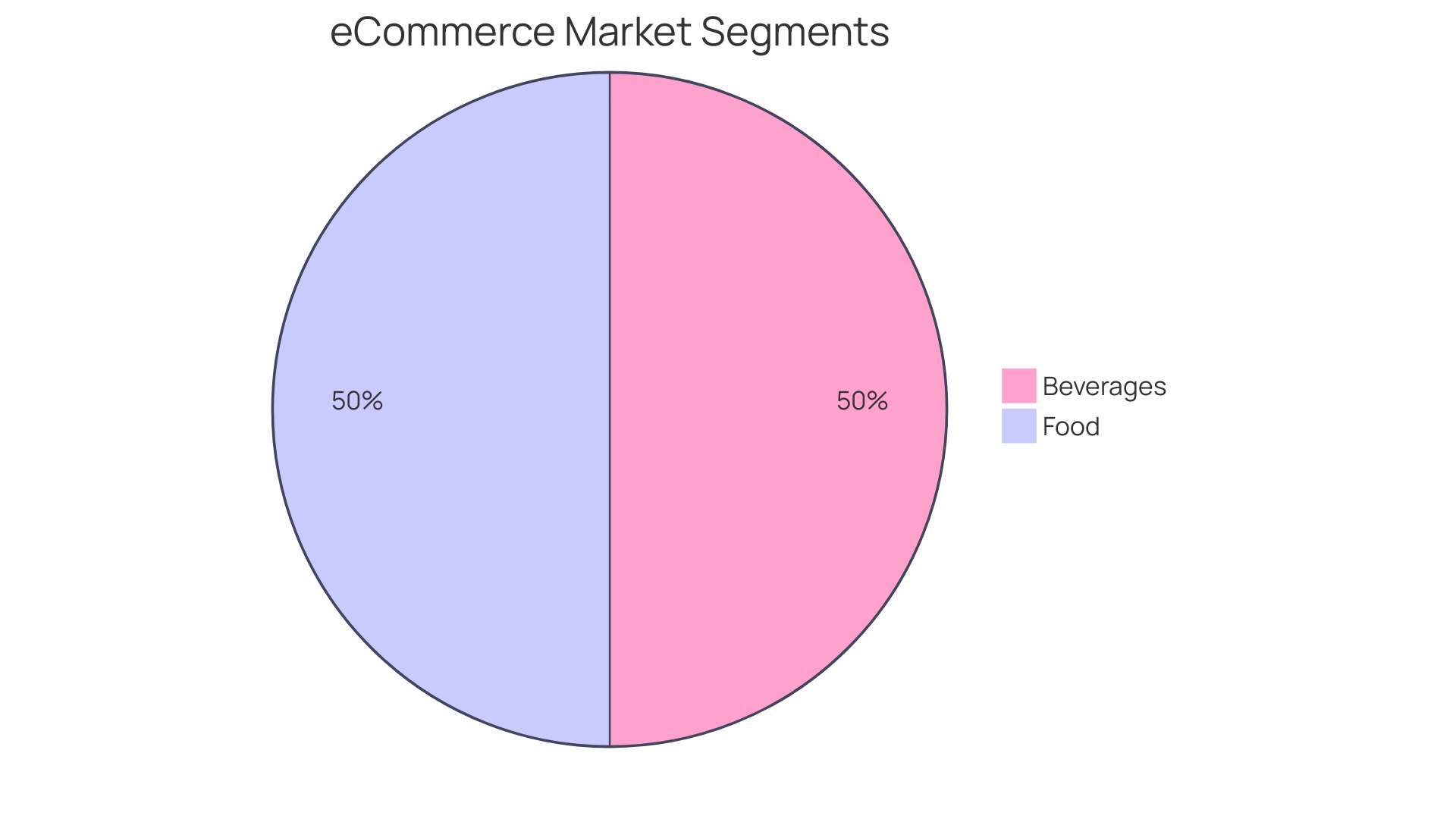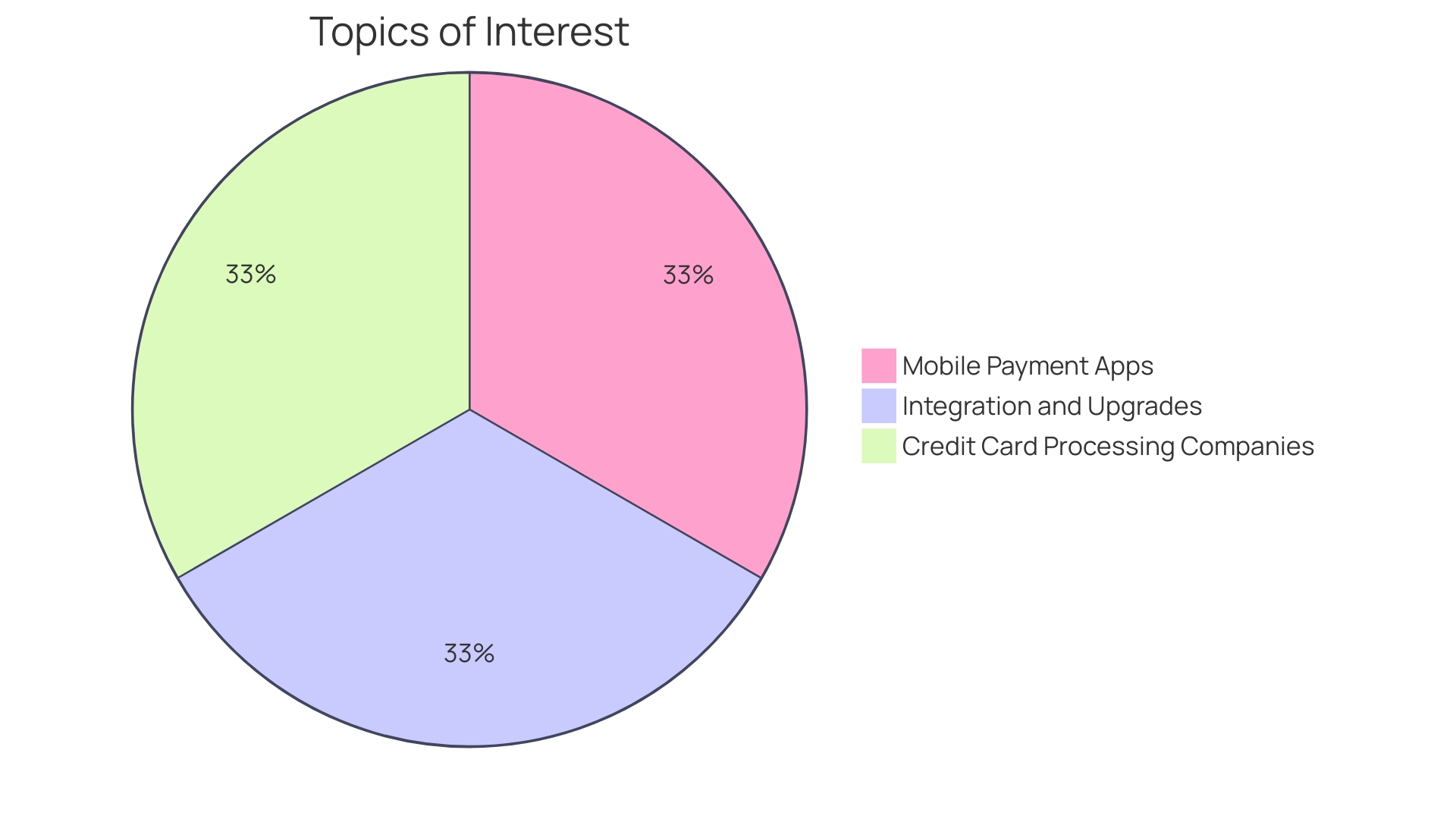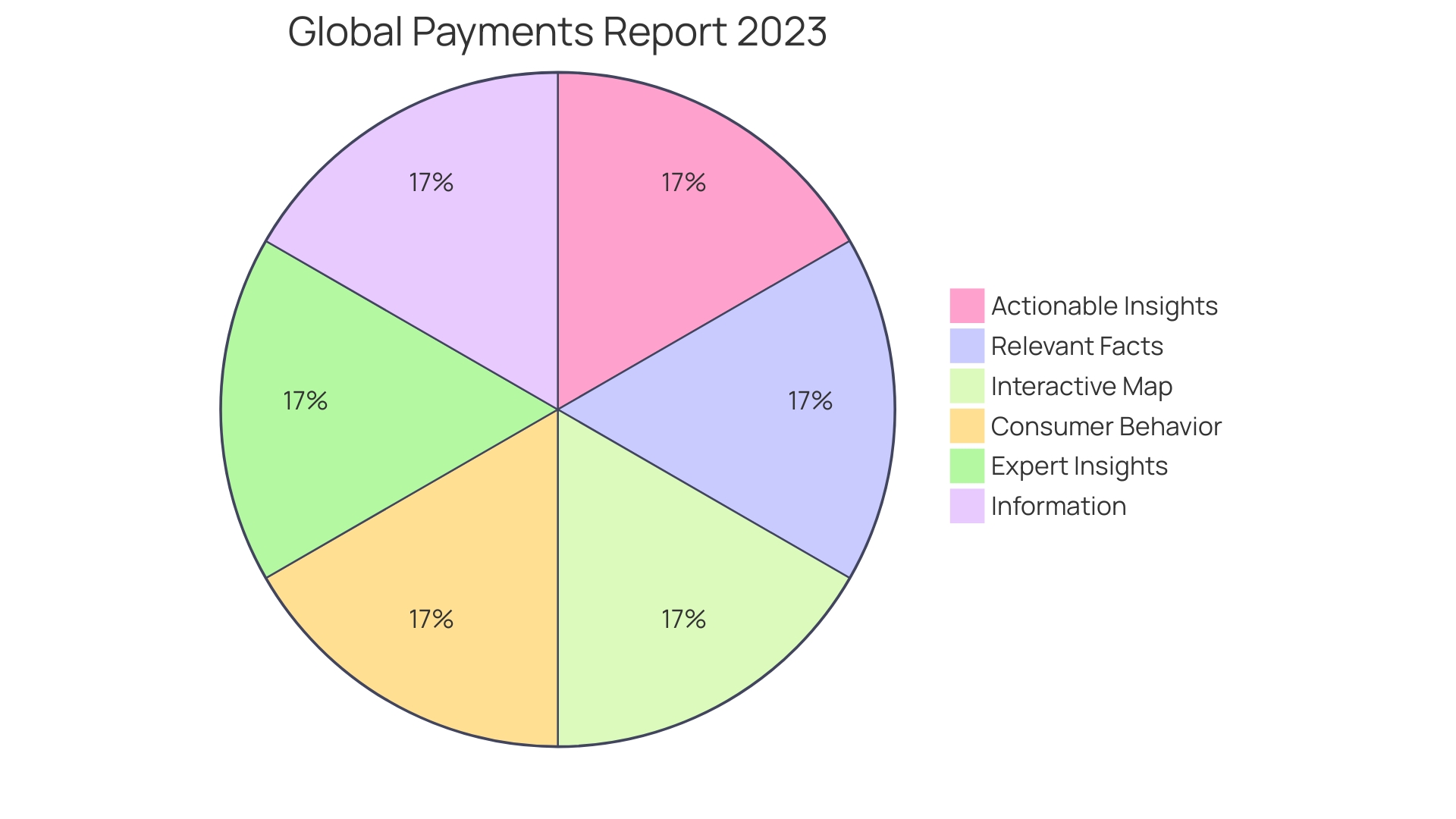Introduction
The world of e-commerce relies heavily on payment gateways for seamless and secure transactions. But how do you choose the right one for your business? In this article, we will explore the key characteristics of payment gateways, the different types available, and the leading options in the industry.
We will also discuss essential factors to consider when comparing payment gateways, such as transaction fees, security features, integration capabilities, and customer support. By understanding the intricacies of payment gateways and staying informed about the latest trends, you can make an informed decision that aligns with your business goals and customer demands. So, let's dive in and explore the world of payment gateways to ensure your e-commerce success.
Key Characteristics of Payment Gateways
Choosing the perfect gateway is essential for the success of e-commerce, and the decision depends on several crucial characteristics. Integration should be a breeze, aligning seamlessly with your existing e-commerce infrastructure. Having a wide range of options for transactions is essential, including credit cards, digital wallets, and bank transfers, to serve a varied base of clients. Beyond the mechanics, the user experience must be superior, with customization features enabling a personalized touch that resonates with customers.
Contemporary buyers are drawn to localized methods of financial exchange, which not only provide a sense of familiarity but can also lower costs and enhance profit margins. For example, GoPay is preferred in Indonesia, Ideal in the Netherlands, and WeChat Pay in China. With the WorldPay Global Payments Report 2023 highlighting the rapid evolution of transaction preferences across 40 markets, it's evident that staying abreast of these trends is indispensable for global commerce.
Payment security is another non-negotiable feature, underscored by the Payment Card Industry Data Security Standard (PCI DSS) requirements. Compliance is not solely about adhering to regulations but ensuring a secure environment for conducting business, which is paramount for maintaining trust and avoiding potential financial penalties and legal issues resulting from data breaches.
Cutting-edge retail solutions, like the Zippin technology-powered checkout-free stores in Dublin Airport, showcase the merging of convenience and technology, offering insights into future developments of the transaction process. As these portals persist in influencing the monetary exchange environment, enterprises must give importance to assimilation, user experience, security, and flexibility to local preferences for financial transactions to remain competitive and offer outstanding client support.
Types of Payment Gateways
In the field of online business, the diversity and sophistication of financial platforms are constantly evolving to meet the demands of global exchanges. Hosted platforms streamline the checkout process by smoothly redirecting individuals to a secure setting offered by the service provider's system. On the other hand, self-managed entrances give companies the independence to oversee clients' payment procedures on their personal servers, giving them more authority over the transaction cycle. Direct pathways for transactions provide a seamless checkout experience, allowing buyers to finalize their purchases without leaving the seller's website.
The inclusion of such gateways impacts multiple facets of a company's operations – from processing payments and analyzing fraud to managing customer billing and tax information. An example of this is Stripe's integration into a unified system, demonstrating how a service provider can transform the landscape of transactions. Stripe's inclusion has not only facilitated various transactional aspects such as captures, refunds, and reconciliations but has also prioritized customer-centricity by storing essential profile and billing details.
Furthermore, the rise of crypto transaction entrances is evidence of the swift progression of digital transactions. These bridges serve as a link, handling cryptocurrency operations and converting them into traditional currency, thereby allowing businesses to embrace digital assets without directly managing them. A report by WorldPay emphasized the swift changes in preferences for transactions, emphasizing the significance for businesses to stay updated with trends such as the surge of cryptocurrency transactions.
In an era characterized by the need for fast, security, and reduced transaction fees, crypto gateways offer a significant advantage over traditional services. They forge a crucial link between merchants, crypto processors, and customers' wallets. NAKA's introduction of a self-custodial card is a prime example of innovative solutions entering the market, offering users the ability to manage funds independently and interfacing with existing infrastructures.
As we navigate through the modern, interconnected world of financial transactions, it's clear that the role of payment portals is more critical than ever. They not only accommodate the surge of online shopping but also embody the convenience and personalization that consumers demand today. As delineated in the Global Payments Report 2023, understanding consumer payment preferences is vital for businesses looking to expand into new markets or keep pace with current trends.
Leading Payment Gateways of 2024
Prominent gateways, like PayPal, Stripe, Square, and Braintree, have become essential elements in the e-commerce environment, offering merchants and consumers with secure and user-friendly financial choices. PayPal, with a commanding 40.52% global market share, has been a pioneer since 1998, evolving to serve over 428 million active users with user-friendly interfaces and extensive payment options. In 2024, PayPal continues to innovate, leveraging AI to enhance the checkout experience, offering new solutions for merchants to expedite transactions, and launching a revamped Venmo to support small businesses. Stripe, known for its seamless integrations and developer-centric approach, provides advanced fraud prevention tools vital for safeguarding transactions. Square's extensive solutions cover both in-person and online transactions, meeting the requirements of various business models. Braintree sets itself apart with a smooth checkout process and backing for a range of transaction options, ensuring flexibility for consumers. The evolution of these platforms, underscored by the need for speed and innovation in a digital commerce market projected to surpass $6 trillion, demonstrates their pivotal role in the modern economy. As businesses and consumers alike seek seamless transactions, these portals offer customized solutions to enhance the purchasing experience, reduce cart abandonment, and drive global growth.

Payment Gateway Comparison Factors
Selecting the correct method of financial transaction processing is a multifaceted process that relies on several vital factors. Transaction fees are a primary consideration; they can differ extensively across platforms, making it crucial to comprehend their fee structures and how these might mesh with your business's financial framework. International payment capabilities are also crucial; gateways should not only facilitate cross-border operations but also offer multi-currency support and payment methods that resonate with local markets.
Security is non-negotiable; robust encryption and fraud prevention tools are indispensable in safeguarding customer data. This is particularly salient as e-commerce burgeons, with consumer demands for secure and streamlined transactions at an all-time high. The Global Payments Report 2023 highlights this trend, showcasing the swift development of preferences for transactions and the significance of keeping up with these changes to succeed in new markets.
Customer support is another foundation, with the quality of assistance provided by the transaction platform being a critical element of the overall user experience. Furthermore, the integration process with your e-commerce setup should be seamless; a complex integration can hinder operations and impact satisfaction. With the ongoing evolution of the e-commerce landscape, the role of financial gateways in shaping the future of monetary exchanges becomes increasingly significant, driven by consumer expectations for convenience, security, and personalization.
Detailed Comparison of Major Payment Gateways
Choosing the right payment gateway is crucial for businesses operating on a global scale, as it directly affects fees, payment options, and the overall experience. Among the prominent choices, PayPal, Stripe, Square, and Braintree each offer unique features and benefits.
PayPal, an established player since 1998, made headlines as it efficiently scaled its infrastructure to support a million transactions daily by investing in hardware and expanding its virtual machines. Their commitment to growth is evident in their customer support options, like the (888) 429-3035 helpline and the seamless account upgrade from personal to business accounts.
Stripe has positioned itself as a unified service provider (PSP) with a customer-centric approach. It manages a broad range of transaction processes, including proposals, captures, and refunds, with a focus on providing an excellent user experience through the Stripe Customer profile.
Square is known for its transparent pricing and flexibility in methods of transaction, catering especially to the needs of small businesses. It has been lauded for its reporting dashboards and accessible customer support, which contribute to its position as a leading credit card processing company for mobile and online merchants.
Braintree, a subsidiary of PayPal, offers strong security features and support for global transactions, making it an appealing choice for businesses seeking to broaden their reach worldwide.
The payment industry has undergone significant changes, especially with the rise of online shopping, as stated by companies like PayPal Holdings Inc. and Worldline SA. The Global Payments Report 2023 highlights the quickly changing environment, indicating a 14% growth in sales and a 48% rise in business activities.
Incorporating insights from industry reports and expert analysis, businesses can navigate the complexities of international transactions and fees. By comprehending consumer preferences and staying up to date with the most recent trends, companies can select a transaction portal that is in line with their strategic objectives and customer demands.

Payment Gateway Pricing and Fees
When selecting a method of receiving funds for your e-commerce operations, it's crucial to scrutinize the fee structures as they directly impact your bottom line. Payment gateways commonly impose charges through fees, recurring monthly fees, and sometimes additional fees for extra features. For a cost-effective strategy, consider integrating local alternative methods of transaction (Apps), which can be more economical than traditional credit card processing. Apps like GoPay, Ideal, and WeChat Pay resonate with customers due to their familiarity and can significantly reduce transaction costs, enhancing your profit margins.
Understanding the fee composition is equally important. The blended fee model offers a fixed rate combining various charges, but it lacks transparency into the cost components. On the other hand, the Interchange++ (IC++) model offers a detailed perspective of fees based on factors like merchant category code (MCC) and instrument of transaction. This transparency can be instrumental in identifying cost-saving opportunities.
For businesses operating a multi-vendor platform, marketplace processing adds another layer of complexity, involving various parties such as acquirers, card networks, and issuing banks. Staying informed about the changing financial landscape is crucial. For example, Coinbase Commerce is expanding the possibilities with onchain transactions, signaling a shift towards more innovative and secure transaction methods.
As you evaluate gateways for transactions, it's essential to be informed about the latest developments and consumer preferences. The Global Transactions Report 2023 provides insights into transaction trends and behaviors across 40 markets, which can guide your decision-making process. By staying up to date and selecting the most effective processing solutions, you can guarantee smooth operations and retain a competitive advantage in the global e-commerce arena.

Security Features and Fraud Protection
Enhancing security is a critical component of international transaction processing. Gateways such as Stripe have developed strong security protocols to guarantee the integrity and safety of customer data, integrating solutions directly into various system aspects like transaction proposals, captures, and fraud analysis. The use of data encryption, tokenization, and sophisticated authentication methods like 3D Secure are vital in protecting against fraudulent activities, which are unfortunately on the rise. Recent statistics reveal a significant increase in fraud attempts, with over two-thirds of consumer accounts and more than half of business accounts experiencing more fraud attempts this year compared to the last.
A shocking incident of a security breach at Canadian processor Slim CD, which compromised the personal information of almost 1.7 million users, highlights the significance of these security measures. While no fraudulent activities have been reported following the breach, it serves as a stark reminder of the potential risks.
Confronted with such obstacles, companies such as Cellpoint, which caters to prominent customers in the worldwide travel industry, stress the importance of a cohesive financial system that can provide safe and dependable processing of exchanges worldwide. Their emphasis on offering merchants with a unified platform that integrates global acceptance and routing is a response to the evolving security demands of international commerce.
Enterprises should carefully assess the security history of financial platforms, taking into account not just their capability to safeguard monetary operations but also their potential for creativity and customer-focused system design. With the average time to detect fraud being 14 months and more than half of the businesses failing to recover any losses, the deployment of advanced security measures is not just a recommendation; it is an imperative for safeguarding the financial health and reputation of businesses engaged in digital commerce.
Integration and Compatibility
Choosing the correct online transaction portal is not only about the expenses involved; it also depends on its compatibility with your digital store. The ease of integration can significantly impact your operational efficiency, so selecting a gateway that offers a seamless connection to your e-commerce platform is crucial. Providers like Stripe demonstrate this by providing extensive integration capabilities that encompass the entire process of financial transactions, including proposals, captures, refunds, and more. This interconnectivity is especially advantageous for customer-focused businesses that prioritize a seamless transaction experience.
Furthermore, the sector is transitioning to open transaction frameworks, as evidenced by SAP's most recent advancement, which enables retailers to connect with a variety of financial service providers such as Adyen and WorldPay. This approach offers flexibility and the freedom to cater to diverse customer requirements and international markets without being tied to a single payment method.
Recognizing the significance of a smooth transaction process, it's crucial to delve into what occurs behind the scenes. When an individual uses a card to complete a purchase, the processor acts as the middleman, guaranteeing safe and efficient routing of the payment. Therefore, your selected gateway for transactions should not only offer compatibility but also provide strong security and a seamless flow of transactions, factors that are crucial in reducing the abandonment of the checkout process and improving the customer experience.
In the present scenario where consumer choices are rapidly changing, it is crucial to stay updated on trends related to transactions. Reports such as the Global Payments Report 2023 provide invaluable insights into consumer behavior and preferences for transactions across different markets. By utilizing such data, businesses can navigate the intricacy of monetary solutions and select a portal that aligns with their worldwide approach and consumer requirements.
Customer Support and Reviews
Selecting the appropriate method of receiving payments involves more than just handling transactions; it's about building a smooth and satisfying service encounter. As businesses aim to improve customer contentment and allegiance, responsive client assistance becomes a foundation of any robust financial platform. To accomplish this, companies such as Stripe have made notable progress by incorporating extensive technical systems that center around the needs of the client, with a focus on elements such as transaction captures, reimbursements, and fraud examination.
Choosing a payment portal that provides strong support channels is crucial. Whether it’s live chat, email, or phone support, having immediate access to assistance can be vital for resolving any issues or answering questions regarding the gateway’s functionality. This proactive approach to service for clients is reflected in the increased emphasis on experience management, a market valued at USD 12.04 billion and growing, underscoring the vital role of support centered around clients in today’s digital landscape.
Actually, more than 67% of clients have demonstrated a inclination for self-service choices instead of conversing with service care agents, underscoring the requirement for effective and user-friendly support systems. By examining reviews and testimonials, businesses can assess the reputation of a transaction system and the experiences of others, ensuring that the chosen system aligns with the goal of delivering a positive and helpful environment for clients.
International acceptance and routing platforms like those utilized by firms such as Cellpoint, which focuses on the travel industry, showcase the requirement for these integrated systems that can serve various consumer bases. With the revival of industries after the pandemic, emphasized by a 48% rise in activities handled by Cellpoint, the significance of flexible and trustworthy client assistance in channels for financial activities has never been more evident.
Choosing the Right Payment Gateway for Your Business
Choosing the perfect transaction entrance is like establishing the base for a strong e-commerce structure. You'll need to consider various elements, such as transaction charges, international payment capabilities, security measures, integration simplicity, service quality, and the gateway's standing in the industry. These factors are critical as they directly influence the checkout process—a commonly cited pain point leading to checkout abandonment. With a seamless transaction process in place, you're more likely to convert browsing into sales, enhancing customer satisfaction and contributing to your e-commerce platform's expansion. As the digital marketplace evolves, with trends pointing towards a modular, platform-agnostic financial infrastructure, the agility to adapt and incorporate necessary tech becomes essential. By choosing a payment gateway that not only meets your current needs but also scales with your growth, you position your business to thrive in a dynamic e-commerce environment.
Conclusion
In conclusion, selecting the right payment gateway is crucial for e-commerce success. Key considerations include integration, a wide range of payment options, superior user experience, localized payment methods, and robust security features. Different types of payment gateways offer unique advantages and integration capabilities.
Leading payment gateways like PayPal, Stripe, Square, and Braintree provide secure and convenient transaction options for merchants and consumers. When comparing payment gateways, factors such as transaction fees, international payment capabilities, security features, integration, and customer support are important. Payment gateway pricing and fees directly impact the bottom line, and understanding fee structures and considering local alternative payment methods can be cost-effective.
Enhancing security and fraud protection is vital, and payment gateways with encryption and authentication methods are essential. Integration and compatibility with online storefronts are crucial for operational efficiency, and seamless integration capabilities offer a smooth payment experience. Customer support plays a significant role in resolving issues and enhancing satisfaction.
In summary, choosing the right payment gateway involves considering various factors to ensure a seamless payment process, customer satisfaction, and success in the evolving e-commerce landscape.





